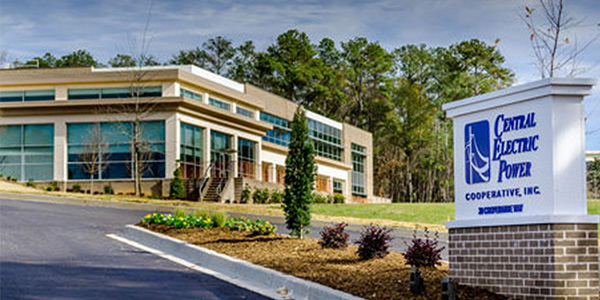By Christen Smith
As South Carolina lawmakers field offers for state-run utility Santee Cooper, its largest customer quietly joined PJM last month.
Central Electric Power Cooperative became a voting member of PJM on Sept. 5 as part of the “other suppliers” sector. Jeff Shields, a PJM spokesperson, said Tuesday the new addition doesn’t include transmission system integration and doesn’t expand the RTO’s 13-state footprint — a somewhat common occurrence among its 1,000-plus members.
“Just like Central Electric Cooperative, they [other individual companies] find benefit from membership without integration of service territory,” he said.
The Columbia-based co-op owns 800 miles of transmission lines across all 46 counties, making it the largest customer of Santee Cooper, the state-run utility company that provides electricity and water to more than 2 million residents statewide.
Central Electric provides wholesale electric service to all 20 of the state’s cooperatives and has a peak demand of about 4,500 MW. The co-op owns community solar and peaking generation but obtains most of its energy through long-term power purchase agreements with Santee Cooper, Duke Energy Carolinas and the Southeastern Power Administration.
The PJM membership will become official once the company receives approval from the U.S. Department of Agriculture’s Rural Utilities Service, expected sometime in November.
“Our relationship with PJM is new, but there’s nothing new about our long-term planning,” said Robert Hochstetler, Central’s CEO. “As we plan, we consider least-cost, reliability and diversification of our portfolio, and their geographic footprint and generating capacity offer benefits other than power supply for Central.”
The cooperative said PJM membership will allow it to request feasibility studies of importing electricity generating capacity and energy from the RTO’s power pool. In its market participant category of membership, however, “Central’s interest will be purely contractual, not operational, in nature.”
“We don’t intend to commit resources into PJM, meaning we won’t be integrating our transmission system with theirs,” said Hochstetler. “We only intend to determine whether purchasing from PJM represents low-cost, risk-adjusted power supply.”
Central said it’s currently in discussions with Duke about its contract, set to expire in 2030. Its Santee Cooper agreement could last until 2058, though the company expects more conversations with other suppliers as it diversifies its portfolio.
Santee Cooper has been under increasing scrutiny after a $10 billion plan to expand the V.C. Summer nuclear plant near Jenkinsville unexpectedly fell apart in July 2017, leaving ratepayers on the hook for $4 billion racked up in construction costs before the utility and its privately run partner, SCANA, pulled the plug. Federal investigators are now trying to determine how soon the utilities knew of the impending doom and whether key information was hidden from lawmakers and regulators who could have intervened.
In March, the state legislature — long pressured by Gov. Henry McMaster — announced a plan to sell Santee Cooper in 2020 to erase the construction debt and spare customers from four decades of rate hikes. Lawmakers have also expressed support for studying RTOs and whether such a system could work well in South Carolina.
As for SCANA, Dominion Energy finalized a merger with the troubled company in January that included a $2 billion plan to freeze customer rates after mounting hikes in the wake of the abandoned nuclear project.
“Putting into effect bills below the temporary rates and keeping residential, commercial and industrial electric bills lower and competitive with neighboring states will aid South Carolina in its economic development efforts and ensure the state has a reliable energy supply to fuel growth and power the state’s homes and businesses,” Dominion CEO Tom Farrell said at the time.




